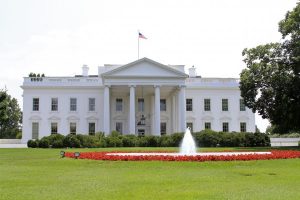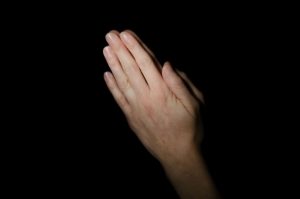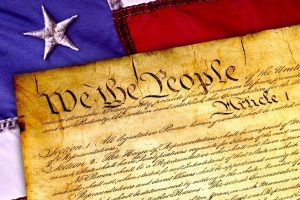In previous posts (Religious Literacy Guidelines for College Students and HarvardX: Online Course on Religious Literacy), we have discussed the necessity among Americans (including journalists) to become more literate about religion, including the Bible (upon which, like it or not, Western civilization is largely dependent). President Donald Trump has announced that his “Department of Education will send a letter to education secretaries and officials in all 50 states reminding them that students and teachers can’t be discriminated against for practicing their First Amendment religious rights.” In addition, “The administration updated 2003 guidance regarding prayer in public schools. The administration also plans to streamline and mandate a federal complaint process that students can use to alert authorities when they’ve been discriminated against.”
Further, the Trump Administration is taking two additional actions along these lines. “Nine federal agencies are releasing proposed rules to ensure religious organizations are not discriminated against by the federal government. The White House Office of Management and Budget will also direct federal agencies to ensure that states and other recipients of federal grants don’t discriminate based on religion.”
Trump claims that these steps are necessary because students are alleging discrimination for practicing their religious beliefs in school. As is always true vis-à-vis initiatives from this White House, we must be extremely cautious with the initiative itself and the stated reasons for it. In this case, a movement called Project Blitz is intimately related to the Bible literacy issue.
What the Law Really Says
Before we analyze some of the problems with the assumptions, arguments and actions around these initiatives, let us lay out what the law really says about freedom of religion, especially as related to the 1962 Supreme Court ruling on school prayer.  According to a 2016 Washington Post article by Valerie Strauss:
According to a 2016 Washington Post article by Valerie Strauss:
- “Schools are forbidden from initiating or sponsoring religious activities, including prayer.”
- “Religious groups are permitted to meet on school grounds after school.”
- “Students can pray to whatever or whomever they want at any time of day, as long as they do it privately and don’t try to force others to do the same.”
- “Religion can (and should) be a class subject – but not proselytized – in public schools.”
- “Sacred music can be played in schools under certain circumstances.”
- “Schools can’t bar teachers or students from saying ‘Merry Christmas’ to each other.”
Needless to say, much is permitted when it comes to students’ ability to practice their religion in school.
The basic goal of the establishment clause of the Constitution is the prohibition against the government (which includes public school systems) imposing a particular religion on Americans.  This, of course, emerged from the Founders’ experience of the established Anglican Church in England, which discriminated against religious minorities.
This, of course, emerged from the Founders’ experience of the established Anglican Church in England, which discriminated against religious minorities.
Today’s conservatives’ erroneous belief about the real intent of this clause of the First Amendment has led a certain swath of our population (school systems, school administrators, and others) to overreact. One result, which we discussed in “Westar Wins Wilbur Award,” is that journalists often do not know how to cover religious news – they have not been taught much about religion in their education. This overreaction about religious expression consequently has led Fundamentalist Christians – and now the Trump Administration – to cry foul, claiming (erroneously) that Christian expression of any kind (such as saying “Merry Christmas”) is forbidden in public schools.
Project Blitz
Project Blitz, according to the St. Louis Post-Dispatch, is a national effort to pass legislation throughout the US to establish specific types of Bible classes in public schools.  So far, nearly a dozen state legislatures have introduced or passed such laws.
So far, nearly a dozen state legislatures have introduced or passed such laws.
These classes do not teach the Bible (which, by the way, is comprised of Hebrew Scriptures as well as the New [Christian] Testament) in a scholarly, evidence-based way but from a Fundamentalist Christian stance. As reported in the Washington Post, the classes are taught by “teachers-as-pastors . . . presenting value-specific Bible lessons.”
Certain values contained in Biblical texts are, of course, laudable! Many of us who read, study and respect the Bible believe that love, mercy, justice, humility, and social justice can fairly easily be found in its texts.
However, as the Post article demonstrates, some of the teachers presenting the Bible from a Christian Fundamentalist viewpoint through Project Blitz do not make the text available to the students at all, they pick and choose the passages to discuss, and they generally do their own analysis from a “born-again” perspective. Furthermore, the goals of these efforts do not appear to consider the texts of other religions, such as Islam, and “references to Judaism presumably are limited to its intersections with Christianity.”
Trump tweeted his support of these legislative initiatives in January 2019: “Numerous states introducing Bible Literacy classes, giving students the option of studying the Bible.”
Therefore, what Trump is doing at this particular time is problematic and, frankly, suspicious on several levels.
- Trump, Project Blitz and similar initiatives focus on the wrong problem.
 Obviously schools and school officials should not allow permitted religious expression in their settings to be punished or limited, and students should have clear, workable ways of filing complaints when they feel wronged. But the problem is the opposite of what is claimed: the Fundamentalist initiatives promote a tax-supported school or entity proselytizing their particular form of religious belief or expression to a “captive audience,” such as a graduation ceremony or sporting event. According to the Freedom from Religion Foundation, Trump and others on the religious right are deliberately blurring the legal distinctions of the law. The Foundation “has sent complaint letters to more than 500 schools during the past three years” – reacting to the “increasing number of reports of schools promoting prayer in ways that cross the line – such as an Alabama high school where a student football team was baptized at school.” (Readers might recognize one of FFRF’s spokespersons: Ron Reagan, son of the former President.)
Obviously schools and school officials should not allow permitted religious expression in their settings to be punished or limited, and students should have clear, workable ways of filing complaints when they feel wronged. But the problem is the opposite of what is claimed: the Fundamentalist initiatives promote a tax-supported school or entity proselytizing their particular form of religious belief or expression to a “captive audience,” such as a graduation ceremony or sporting event. According to the Freedom from Religion Foundation, Trump and others on the religious right are deliberately blurring the legal distinctions of the law. The Foundation “has sent complaint letters to more than 500 schools during the past three years” – reacting to the “increasing number of reports of schools promoting prayer in ways that cross the line – such as an Alabama high school where a student football team was baptized at school.” (Readers might recognize one of FFRF’s spokespersons: Ron Reagan, son of the former President.) - In the case of the 9-year-old Utah boy whom Trump used in his roll-out ceremony on January 16, 2020 – the boy was forced to remove the cross of ashes from his forehead on Ash Wednesday – Trump is not acknowledging other aspects of the story. The boy’s teacher has apologized to the student, not realizing that the ashes were a religious symbol, and she is being supported by her community and using the incident as a teaching moment.
 (This teacher’s shortcoming demonstrates fairly starkly our point about religious illiteracy having real-world ramifications: teachers and administrators need to know common religious practices in this country! Ash Wednesday is not exactly an obscure day in the Christian calendar, although it might be less-known in Mormon-dominated Utah than in many other states.) Given Trump’s history of using vulnerable people, including children, for his political ambitions, it is not a stretch to assume that he is using this boy’s story to play to his evangelical base.
(This teacher’s shortcoming demonstrates fairly starkly our point about religious illiteracy having real-world ramifications: teachers and administrators need to know common religious practices in this country! Ash Wednesday is not exactly an obscure day in the Christian calendar, although it might be less-known in Mormon-dominated Utah than in many other states.) Given Trump’s history of using vulnerable people, including children, for his political ambitions, it is not a stretch to assume that he is using this boy’s story to play to his evangelical base. - Trump’s supposedly new guidelines and initiatives are not really new. As with many (most?) issues hyped by his Administration, this announcement is primarily a media opportunity, one geared toward trying to assure Fundamentalist (mostly white) Christians that he is on their side. The “savior” Trump is ostensibly protecting these particular Christians against wrong-headed “liberal” notions that “injure” them – racial and religious diversity, pro-choice and pro-gay stances, and women’s agency and rights. There is also a fear factor on Trump’s and others’ parts: much mainstream religious scholarship, as we have seen in our posts in the Past category, challenges many precepts of Fundamentalism – with facts and evidence.
- Finally, the whole notion of Donald Trump truly supporting sincere religious belief is almost laughable, if it weren’t so serious. Trump, raised Presbyterian, almost never attends church services (unlike most of his recent predecessors in the White House). While many “God-fearing” people have personal faults, most of our elected leaders do not have the stunning record Trump has of extra-marital affairs and accusations of sexual predation – behaviors clearly frowned upon in Christianity. Trump is a pathological liar, he has misused charitable donations to enhance his own wealth, he has consistently failed to pay people to whom he owes money, he claims he does not ask God for forgiveness for his actions, and he has insultingly referred to the wafer distributed at Holy Communion as “my little cracker.”
 Evangelicals and Fundamentalists who strongly support Trump are ignoring all of these shortcomings – the “ends” of the appointment of conservative judges and the overturning of progressive regulations justify the “means” of Donald J. Trump. Since it is highly likely that Trump has Antisocial Personality Disorder – he is a psychopath – it is very important to understand that one of the traits of psychopaths is that they do not believe in God because they believe they are God…
Evangelicals and Fundamentalists who strongly support Trump are ignoring all of these shortcomings – the “ends” of the appointment of conservative judges and the overturning of progressive regulations justify the “means” of Donald J. Trump. Since it is highly likely that Trump has Antisocial Personality Disorder – he is a psychopath – it is very important to understand that one of the traits of psychopaths is that they do not believe in God because they believe they are God…
Our Wake-up Call
Uncovering the facts around Project Blitz and the Trump Administration’s hypocritical initiatives toward Biblical literacy should be a wake-up call not only to adherents of mainstream religious organizations, which often stress social justice issues rather than soul-saving, Biblical inerrancy, and “hellfire and damnation,” but also to more secular progressives who often look askance at religion in the public square and public schools. Warning: we must not throw the baby out with the bath water! Progressives must promote the teaching of religion – as a legitimate field of inquiry like any other – in public schools and at the college level. Journalists must be better educated about religion and religious issues.
In short, progressives must understand the difference between religion as a scholarly field, and the responsible teaching and reporting thereof, and deceptive faith-based initiatives. There is a vast difference! The former approach is absolutely essential in a democratic republic like ours; the latter is not only one-sided, prejudicial, insidious and deceptive but also extremely dangerous – it promotes white supremacy, discrimination, abuse, and even violence. US citizens who cherish our freedoms must stand up against Project Blitz and its sister initiatives.
